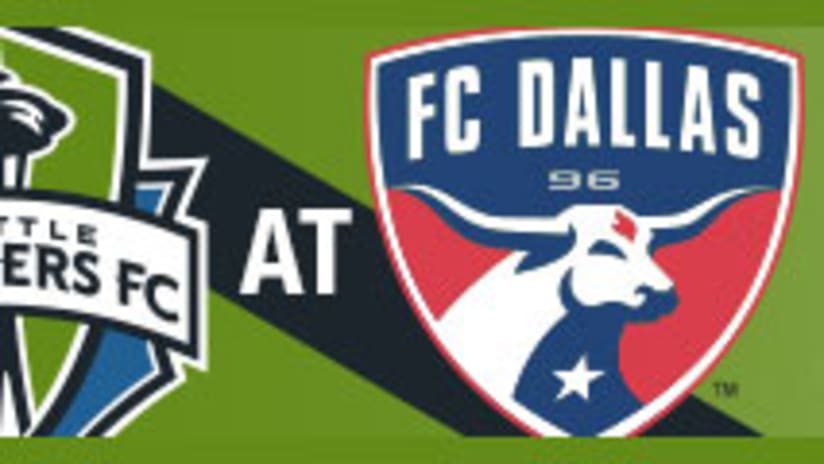Victor Hugo, most famous for his authorship of Les Miserables, once said there is an unspeakable dawn in happy old age. In a literal sense he was speaking about the knowlegde that comes with aging, and the idea that what we perceive as old age is accompanied by a perspective and experience quite foreign to our younger selves.
There is no one professional soccer player who could be considered old on an average lifespan timeline, but old in soccer parlance has always been somewhere on the downslope of 30 for outfield players. There are players who hit their stride in this age bracket, but athletically, there’s no denying the muscles protest more, the rigorous training sessions exact a heavier tax and the gap between games seems to shrink.
In an MLS postseason that’s flung open its gates to the young like seemingly never before, the current crop of Sounders FC players looks to be in the midst of that unspeakable, happy dawn. With an average roster age just north of 29 years old, the Sounders have the oldest roster in MLS, and they looked positively statesmanlike in their Western Conference Semifinals first leg against FC Dallas on Sunday night. The average age of the starting XI against FC Dallas was nearly 30 years old. The average age of FCD’s starting lineup was 24.5.
The important thing to note, though, is who won the game.
Seattle got its first goal from the 32-year-old Andreas Ivanschitz, who finished a beautiful 20-yard sidewinder only after a 30-yard sprint cross-field 70 minutes into an exhausting end-to-end game. And its second came from practiced veteran Clint Dempsey, whose savvy helped him dissect a free kick situation to perfection and fit his shot just underneath the crossbar with three minutes left.
FC Dallas did its best to sprint Seattle’s older legs out of the match, but precisely the opposite happened. FC Dallas got its goal early and slowly watched the Sounders erode their defenses over the final hour of the match. In fact, Seattle outdid FC Dallas in the second half in almost every measurable team statistic.
It almost goes without mentioning that a roster with an average age six years older than FC Dallas would find its legs at the right time in the playoffs. So goes experience. The Sounders may have a tighter window at a championship with their current rosters, but suddenly it’s propped wide open.
It isn’t just FC Dallas, either. MLS teams league-wide are finding new ways to integrate youth - both Homegrown and signed from abroad - into their lineups in ways that didn’t exist before. The two other remaining teams in the Western Conference are a testament to that fact.
Head Coach Carl Robinson has built Vancouver Whitecaps FC in a style FC Dallas fans might recognize. The Whitecaps and Portland Timbers fought to a scoreless draw in the other Western Conference Semifinals matchup last weekend, and the average age of Vancouver’s starting XI was 24.8, nearly the same exact age as the lineup FC Dallas fronted in Seattle a few hours later. On the other end of the field, Portland’s was 27.1.
Over the last five years, there’s been no real statistical basis on which to root a certain age leading to a certain amount of MLS Cup success probability. In 2010, the Colorado Rapids won the cup behind a ragtag group that averaged out at 26 years old, which is relatively young for a Cup winner. The average age of the LA Galaxy’s three MLS Cup winning rosters since 2011 is around 27.5 (topping out at 28.3, which was the age of the team that won it last year), while the Sporting Kansas City team that won it all in 2013 carried an average age of 26.6.
“It’s changed in soccer. I remember in the old days when you were 32 you were considered an old man,” Sounders Head Coach Sigi Schmid said Tuesday. “There were a few guys who played into their late 30s or early 40s, now you got guys doing it all the time. You got guys like Didier Drogba, who can still give meaningful contributions.
“Is 28 still the prime, or is it 31 or 32 now? I couldn’t tell you. It’s probably somewhere in the middle.”
All of this definitively lead you down a primrose path to any clear-cut conclusions on how age relates to win probability in the playoffs, but experience certainly lends a hand. Each of the Galaxy’s title-winning teams had buckets of it: Landon Donovan, Robbie Keane, David Beckham. The Sporting KC team that won two years ago were less than a year removed from a U.S. Open Cup championship run and had won the Eastern Conference that year. Even the Rapids, outliers as they are, had vital locker room components over 30 like Pablo Mastroeni and Brian Mullan.
Bringing the focus back to this season, Seattle’s experience has been coming to bear on younger teams all season. The Sounders are 5-1-2 against Vancouver and FC Dallas this season, and 7-3-2 across all competitions against all three of the teams left in the Western Conference playoff race. That includes a perfect 4-0-0 record against all three since Aug. 31.
Schmid on Tuesday praised the recent play of the team’s veteran players – Dempsey, Ivanschitz, Nelson Valdez and Obafemi Martins, most notably – and said that while there are obvious benefits for a young team playing with exuberance and naïveté, the Sounders’ experience has paid dividends to get the club this far.
“Experienced guys, we talk about Dempsey’s goal or Ivanschitz’s goal, but the workrate Oba has put in over the three games, the way he’s fought and battled and gotten onto second balls?” Schmid said. “That’s an experienced player who knows it’s money time and we gotta do the business.”
The Sounders carry more age into the crucible of the playoffs than any other team left in the field, and certainly any team left standing in the West. Seattle’s battled the injuries that accompany that age at times this season, but the experience in vital situations has carried the team through its darkest stretches and out the other side. So it goes with the calm demeanor fostered by past experience.
So while it may not be tough to find a younger team than Seattle in these playoffs, it’s considerably harder to find a better one.





